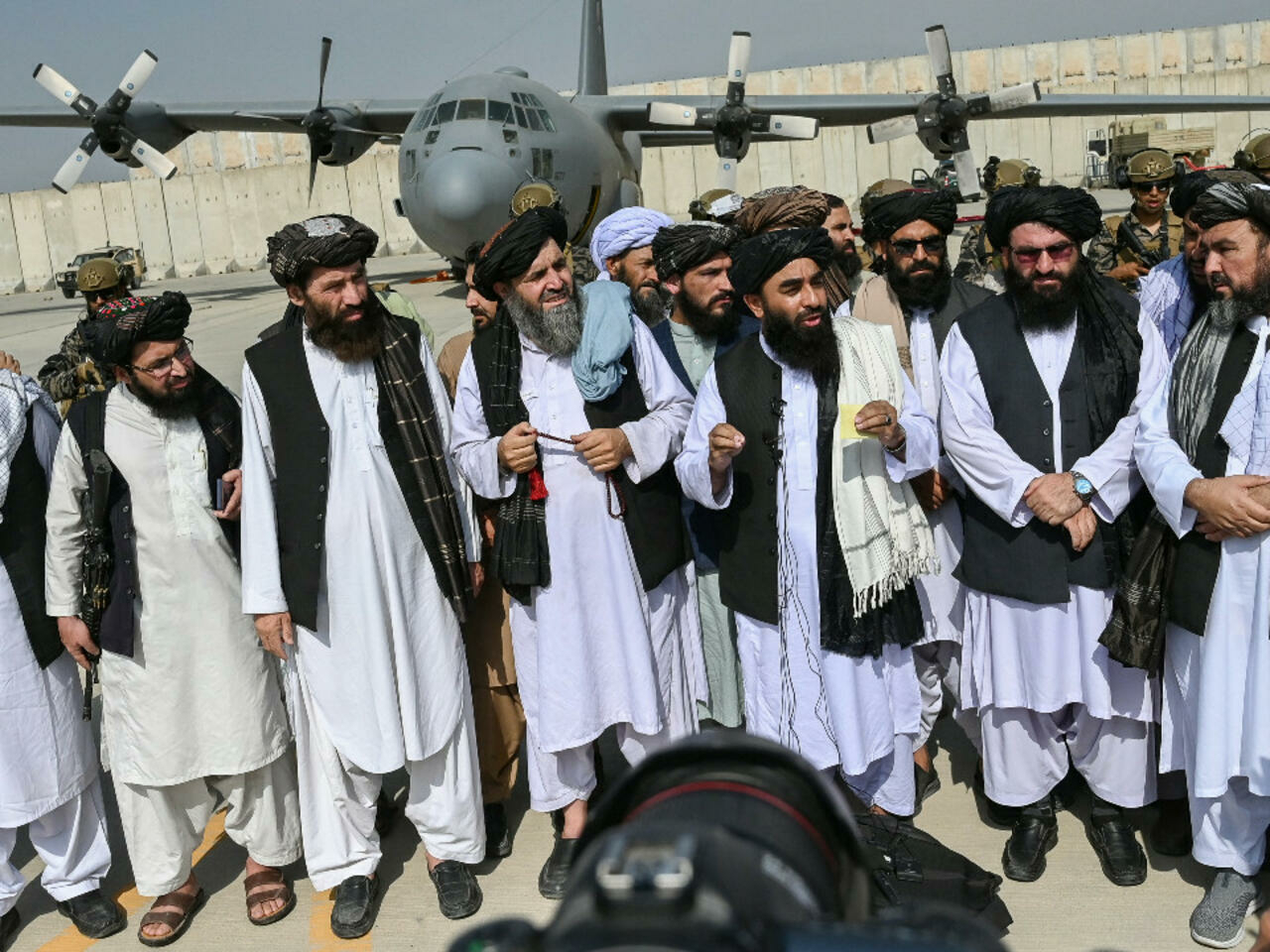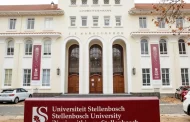A 2021 retiree as a Professor of Political Science from the Richmond University in the United States of America but currently teaching at Fourah Bay College, University of Sierra Leone, the author takes us through Russia’s on-going war in Ukraine from his own lenses:

The author
Prof Jimmy D. Kandeh
The wars powerful states like to fight are precisely the ones they tend to lose. Wars of aggression against weaker opponents have not always ended well for aggressor states not because of hard power deficits but because they overestimate their capabilities and underestimate the capacity, resolve and tenacity of weaker adversaries. Wars of aggression are inherently unjust and tend to stiffen the resolve of the weak, rally the nation against a common enemy and unite a people with a sense of purpose, mission and collective sacrifice. No event, it can be argued, has contributed more to unite Ukrainians since the establishment of the Kievan Rus in the 9th century than Putin’s brutal invasion. Russians living in Ukraine, not to mention Ukrainians and the rest of the world, have been horrified by the maddening ferocity of Putin’s assault. War crimes may produce a few battle wins but they can never form the basis for sustainable peace and security.
Several factors help determine the outcome of wars involving combatants with asymmetric capabilities and resources. These include military capabilities, resolve or determination to fight, terrain and tactics, legality of war (just/unjust wars) and external/domestic support. Superior military capabilities advantage powerful states but they don’t guarantee victory in wars. The resolve of a state or its people to fight can offset the military advantages of the most powerful states in the world. United States in Vietnam, China in Vietnam, Soviet Union and United States in Afghanistan and United States in Iraq are examples of armed conflicts that did not end in victory for powerful states. The current invasion of Ukraine by Russia invites comparison with its 1979 invasion of Afghanistan, a war the Soviets lost to the Mujaheddin and a defeat that precipitated the Soviet empire’s demise. Ukraine looks like a quagmire for the Russians, just as Afghanistan was for the Soviets and Americans, proving once again that powerful states don’t always win wars over weaker foes. The balance of resolve, nature of the war, combat terrain, tactics of combatants, external and domestic support, are important factors that can neutralize the advantages of military superiority.
An imbalance or disparity in resolve is a key dynamic that shapes the outcome of asymmetric wars. In many cases it is the states with superior military capabilities that lack resolve while those with high levels of resolve often possess inferior military capabilities. But what weak states and combatants lack in capabilities they often make up for by the sheer force of their determination to ultimately prevail. Playing the long game favors weak states but frustrates strong states who can invade and occupy the former but can never hold on to them because of sustained resistance to occupation. Superior resolve trounced the French army in Algeria, the American army in Vietnam, Afghanistan and Iraq and the Soviet army in Afghanistan. A similar scenario may be unfolding in Ukraine where Russia’s invasion has run into problems that have less to do with capabilities than troop morale and the determination of Ukrainians to defend their country against Russian aggression. It is tough to win any war with unmotivated foot soldiers consisting largely of draftees, as is the case with Russian troops, and whose low morale is compounded daily by mounting combat fatalities.
Terrain can favor the weak in asymmetric wars. Terrain familiarity is a critical asset weaker forces tend to have that aggressor states often lack. This differential renders the armed forces of aggressor states highly vulnerable to ambushes, traps and mass fatalities. Afghanistan is the ‘graveyard of empires’ because of the historical role of its impenetrable mountainous terrain in stalemating and fending-off foreign invaders (British, Soviet, America). Tora Bora was both hideout and escape route for Taliban and al-Qaeda fighters after the United States invaded Afghanistan and the jungles of Vietnam in an earlier period provided cover for insurgents that helped minimize American air superiority in the Vietnam war. The Russian invasion of Ukraine has been slowed due to the adaptability of Ukrainian forces, which include civil defense units, and the inability of Russian forces to adapt as quickly to rapidly changing environments. This difference in capacity to adapt on the battlefront is best illustrated by Russia’s forty mile blitzkrieg convoy that was headed for Kiev but got nowhere.

Flashback to American troops hurrying out of Afghanistan in 2021 upon receiving intelligence that the Talibans were less than 24 hours from closing in on Kabul
Tactics (guerrilla warfare, civil defense, booby traps, roadside bombings, suicide missions, etc) and weaponry (platform versus anti-platform) distinguish combatants in asymmetric warfare. While powerful states like Russia rely heavily on platform weapons like fighter jets, battle ships and tanks, it is the strong anti-platform capabilities of the Ukrainians that is leveling the battlefield with the Russians. These weapons have been so effective against Russian tanks and fighter jets that Volodymyr Zelensky is asking for 500 javelin missiles a day to shoot at Russian tanks. Ukrainians are making use of fortified checkpoints and guerilla tactics to defend their cities and towns, options that are not readily available to the Russians whose forces are taking heavy losses in a war that has certainly not gone Putin’s way. Powerful states often claim to be in compliance with the rules of war while weaker belligerents, especially armed irregulars, are typically portrayed as non-compliant. But in Ukraine it is the Russians, not the Ukrainians, that are committing war crimes. Counter-value targeting of civilians may have worked in Chechnya where Putin incinerated Grozny but Chechnya is inside Russia’s borders unlike Ukraine where Putin may be following the same playbook albeit against a sovereign state.

Flashback to Soviet troops hurrying out of Afghanistan in 1989
Powerful states are most vulnerable in ground wars. They can control air spaces, launch missiles and fire artillery at chosen and collateral targets but they cannot occupy a country without putting boots on the ground. And it is when they engage in ground combat that battles begin to tilt in favor of the weak and against the powerful. Vietnam taught America to be wary of ground wars (Nixon doctrine) and to instead support proxies in Low Intensity Conflicts (LICs). Low-intensity conflicts became synonymous with a policy of destabilization (Reagan doctrine) in places like Nicaragua, Afghanistan and Angola where the United States supported insurgents (Contras, Mujaheddin, UNITA) against incumbent governments in the name of containing communism. Iraq and Afghanistan were the first post-Vietnam conflicts in which America committed large ground forces and the outcomes in both cases were disastrous. A similar result seems to be unfolding for Russia in Ukraine where the advance of ground forces on major cities has stalled and weary Russian troops continue to take heavy losses at the hands of Ukrainian armed regulars and irregulars.
External support can make a difference in combating aggression and prolonging armed conflicts. Aggressors tend to lose long, protracted wars of attrition that strengthen the resolve of weaker states and combatants while demoralizing and weakening the resolve of powerful states. Other than a few Jihadists who joined their ranks, Chechnya separatists attracted little or no external support in their struggle for independence from the Russian state. Ho Chi Ming’s Forces could not have held their own against the superior military might of the Americans without support from the Soviet Union and China, and the anti-aircraft stinger missiles used by the Mujaheddin to bring down Soviet fighter jets and helicopters in Afghanistan were supplied by America. These same stinger missiles are once again being used with great effectiveness in Ukraine against the Russians. With NATO united in its support of Ukraine and given the groundswell of goodwill for Ukraine around the world that Russia’s invasion has triggered, it is difficult to see an off-ramp for Putin that does not leave Russia diminished and far weaker after than prior to the invasion. By helping Ukraine resist aggression, prolong the war and make it costly for Russia, external support has eroded Putin’s chances of subjugating Ukraine. Putin’s best outcome is a stalemate in which he cannot win but does not want to lose or be seen as loser. Stalemates are associated with quagmires and both the Russians and Americans have had plenty of experience dealing with such situations but the isolation Russia is currently facing is unprecedented in the post-cold war era and more damaging to its war efforts in Ukraine than when it invaded Afghanistan. Russia was also far less integrated into the global economy during the cold war than it is today and sanctions have amplified its vulnerabilities.
While Ukraine enjoys robust external support Russia has been widely denounced and slapped with very punitive sanctions. Domestic support for Ukraine’s counter-offensive against Russian invaders is strong and not likely to recede even with mounting casualties, dislocations and privations. Russian casualties are hidden from the Russian public out of fear that such reportage could stoke opposition to the war and Russians who have demonstrated against the war have been rounded-up and detained. Huge combat fatalities, which already exceed the combined figures from Afghanistan and Chechnya, and the sudden isolation of Russia are likely to turn many Russians against Putin’s war and personalist dictatorship. Censorship and propaganda may prevent Russians from learning about the war but it cannot insulate them from the effects of biting sanctions and global isolation.
The deck is stacked against Putin who may lose his latest war of aggression because of some of the reasons outlined above. Russia lacks the resolve of the Ukrainians and Putin’s invasion has united Ukrainians and steeled their determination to fight against a superior and ruthless military power. International law is on Ukraine, not Russia’s, side and the unprecedented levels of external support for Ukraine is tilting the scales of war against the Russians. Sanctions and isolation have transformed Russia into a pariah state and this creates all sorts of difficulties not just for its troops in Ukraine but for the entire Russian population. Fighting in their own backyard gives Ukrainians the upper-hand against Russians whose lack of terrain familiarity, with low morale and high combat losses may explain their stalled advance on Kyiv and their preference for shooting missiles and artillery from afar rather than engage in close armed urban combat. The fact that Russia is fighting an unjust war in Ukraine and is on history’s wrong side also increases the odds of failure.
With Ukraine outperforming and Russia underperforming expectations, what is unfolding in Ukraine is yet another reminder that powerful states, especially superpowers, do not always
prevail in asymmetric wars of aggression. Putin wants independence for Russian separatists in Ukraine but does not want Chechens in Russia to be independent. He would like nothing more than to reconstitute the former Soviet Union by reincorporating as many of its former republics into Russia. But centuries of Russification under tsarist and socialists did not fundamentally change the orientation and attachment of non-Russians to their respective national identities. What united Soviet citizens was weaker than what divided them and it is this reality that, among other factors, made possible the Soviet Union’s dissolution. Putting this empire back together in whatever form would represent an existential threat not only to Russia’s neighbors but to the rest of the world.




























